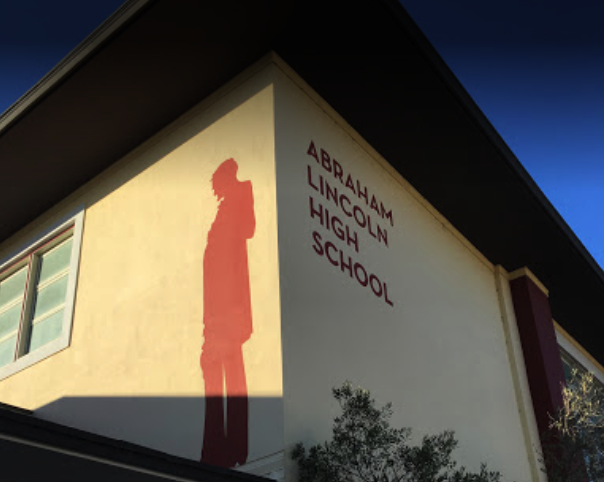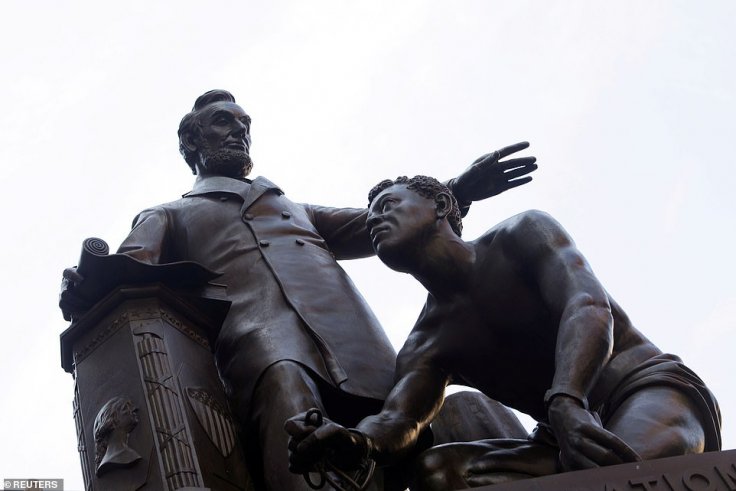On Tuesday, several conservative news outlets, as well as Trump, started pushing reports that a San Francisco district committee was planning to rename the Abraham LincolnHigh School in the city's Sunset District because the 16th U.S. President "didn't show Black lives mattered to him."
Since Black Lives Matter protests erupted across the country following the high-profile police killings of African-Americans this year, the racial injustice movement has been the subject of national media coverage and discussion.
The discussion of how racism and injustice played a formative role in American history has often cropped up in the form of protests over symbols and statues of historical figured like Confederate soldiers and Christopher Columbus.
However, the Black Lives Matter movement or what it stands for had nothing to do with the district's proposal to change the name of the school, as confirmed by fact-checking website Snopes.
Quote Manipulated to Create 'Misleading' Headline

According to Snopes, the source for the misleading report that Frisco was set on changing the name of the high school because Lincoln did not demonstrate "Black Lives Matter," was derived from a single quote by Jeremiah Jeffries, the chair of San Francisco Unified School District's School Names Advisory Committee.
"Lincoln, like the presidents before him and most after, did not show through policy or rhetoric that Black lives ever mattered to them outside of human capital and as casualties of wealth building," Jeffries was quoted as saying by the San Francisco Chronicle in a Dec. 14 article on the subject.
Jeffrie's remark was taken out of context by outlets to say "that Black Lives ever mattered to him" even though he made the comment in reference to various presidents, including Lincoln. Moreover, the comment from Jeffries was not made in connection to the committee's decision to place the school on the list for name change consideration. It was a quote from Jeffrie's own opinion on former presidents' legacies.
Renaming Proposed Due to Lincoln's Treatment of Native Americans
Earlier in the Chronicle story, Jeffries stated that the committee put the school's name on the list because of Lincoln's treatment of Native Americans. "The discussion for Lincoln centered around his treatment of First Nation peoples, because that was offered first," Jeffries said.
A spreadsheet compiled by the committee on recommendations for name changes makes no mention of "Black Lives Matter" and instead has the Lincoln administration's discrimination of Native Americans listed as the reason, citing their continued, forced removal from ancestral lands and the mass hanging of members of the Dakota tribe in 1862.
Also, it is important to note that the recommendations will be voted on by the city's school board before a decision is made and the process is likely to take place in early 2021.
Lincoln Role in Abolishment of Slavery

Lincoln played a crucial role in ending slavery and unifying the country after the Civil War and has made him one of the most recognizable and revered historical figures in U.S. history. "If slavery is not wrong, nothing is wrong", he stated in a now-famous quote.
Lincoln is not only responsible for the Emancipation Proclamation that declared "that all persons held as slaves" within the rebellious states "are, and henceforward shall be free," but also pushed for the 13th amendment, which formally abolished slavery in the United States.
However, his legacy for indigenous people is more complicated as the mass execution of the 38 Dakota men, the largest mass execution in U.S. history remains a source of trauma to which Lincoln's presidency is attached.








